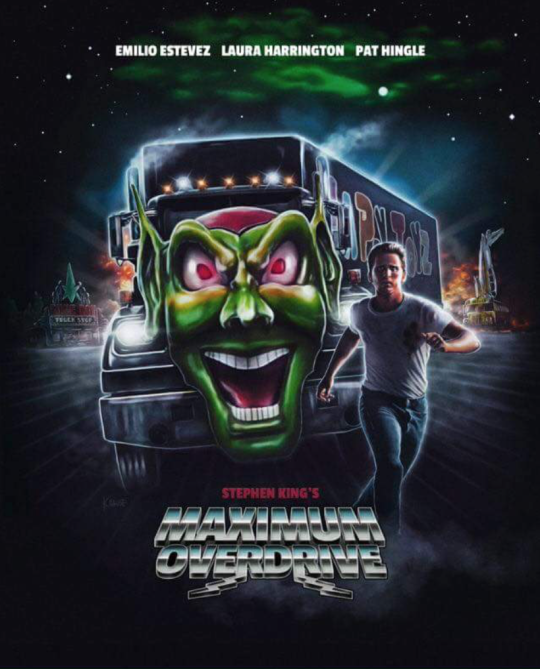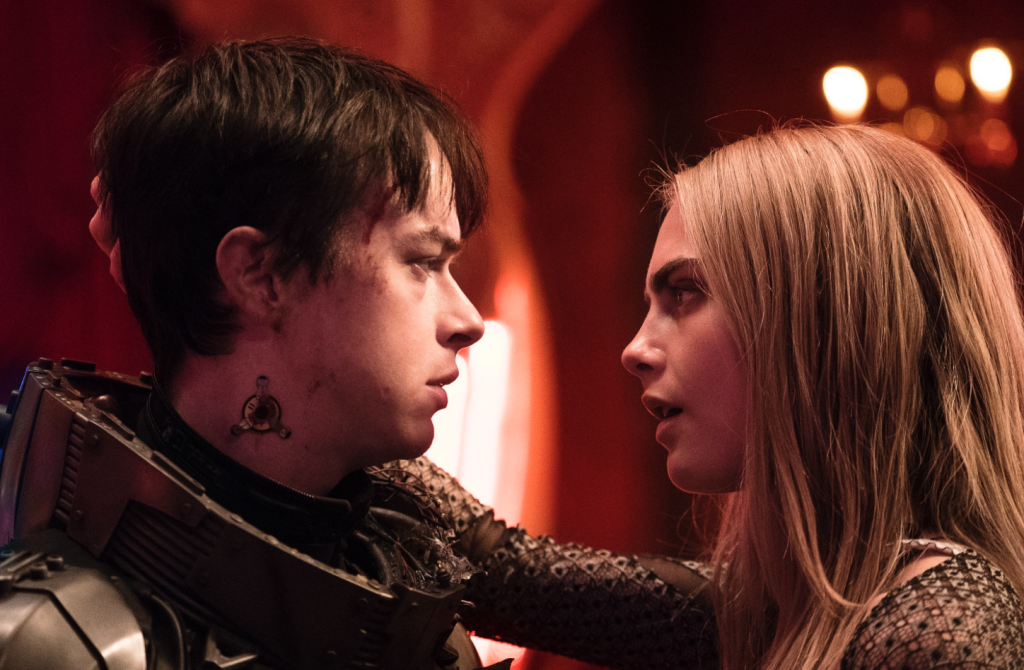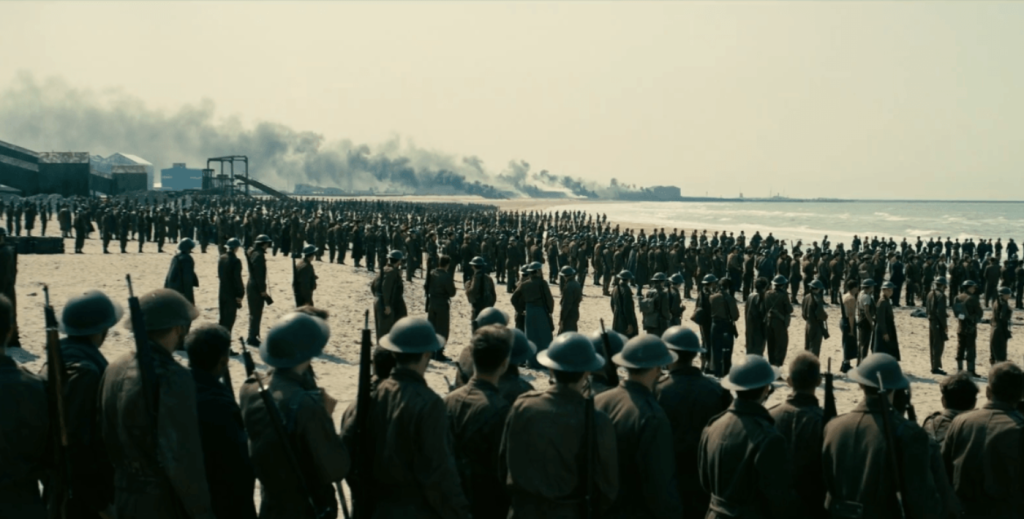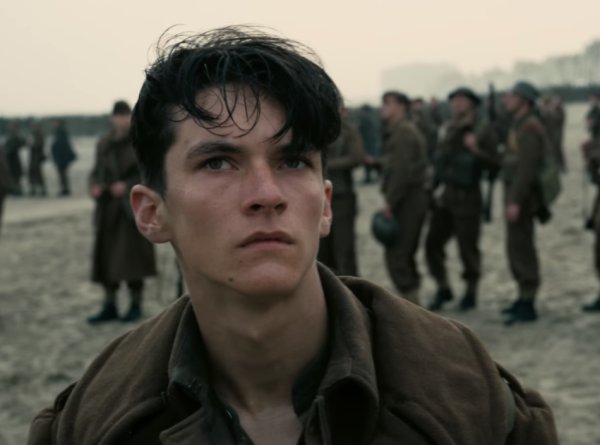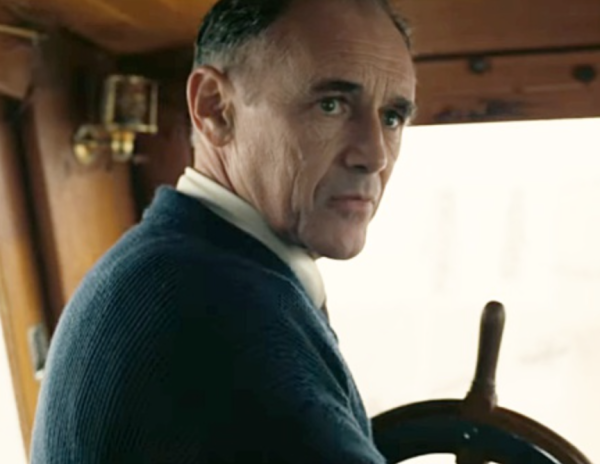So maybe I was a little bit of an ageist yesterday. Picking on a script because it was written by a 22 year-old. The script had made mistakes, I claimed, that only a young writer would make. That was some proper-ass stereotyping I was doing. That’s not cool, Carson.
But it was true.
In revisiting my Maximum King reading experience, I further realized why the script had missed the mark. It was completely devoid of any conflict. The reason that tends to be a young writer mistake is that younger people haven’t experienced the pushback from life that a longer living experience gives you. You don’t truly realize how difficult life is until you’re thrust out into it and it does everything in its power to beat you down.
From the very first scene in Maximum King, conflict appears to be an afterthought. Someone comes to Stephen King and says, “Do you want to make a movie?” To the uninitiated screenwriter, you look at that and go, “So what?” To people who understand drama, they know that that’s the worst way you could possibly start a story. One of the most sought after and hard-to-get jobs in America – directing a movie – is just HANDED to our hero?? He didn’t have to do anything for it but exist??? That’s not drama. That’s boring.
But I’ll give you the moment that confirmed to me that this screenplay was screwed. I knew after this scene that the writer didn’t understand the concept of conflict. And since conflict is the whole ball of wax in screenwriting, the future looked grim.
The scene in question has Stephen King deciding he wants to hire AC/DC to score his movie. Why? Because they’re his favorite band. Had they ever scored a movie? No.
You would think, then, that this would be the perfect opportunity for conflict. Stephen King goes to his heroes, asks them to score his movie, and they say “No. We’re not movie composers. We’re a hard rock band. Go fuck yourself.” And Stephen King would then have to CONVINCE them to do it. The scene almost writes itself.
Instead, we get this…
“So you want us to—“
“Write an original soundtrack for the movie, back to front, yes.”
“And the movie is about—“
“Right, trucks— no, well, not just trucks but all machines, because a comet passes over Earth and causes all the machine to—“
“Sure, come to life.”
“Exactly.”
“Well shit, I guess I’m the fuck on board. I love your writing, and Brian is a huge fan of Carrie, so.”
Brian agrees.
“Great.”
“Great.”
Do you see how boring that scene is? Do you see how it could’ve potentially been a lot better had they told King no? I mean that early line is practically begging for a no. “And the movie is about…” “Right, trucks— no, well, not just trucks but all machines, because a comet passes over Earth and causes all the machine to—“ Long pause. “Dude, that doesn’t make any fucking sense. How the hell are we supposed to write music to that?” And King now has to convince them.
Nope. Didn’t get that.
So that’s today’s lesson. It’s simple yet powerful.
JUST SAY ‘NO’ TO YOUR HERO
Your protagonist will want a lot of things in a movie. He might want a raise. He might want sex from his wife. He might want to sell milkshake makers to fast food restaurants. He might want more attention from his parents. He might want to go with his dream girl to prom. He might want to explore an island he believes contains a giant ape. He might want his daughter to start eating dinner with the family again.
Say no.
Have all those people say no to your hero.
Because when you say no, that’s when things get interesting. That’s when your character has to work for it. And work means action, which leads to uncertainty, which leads to audience curiosity (“Is he going to succeed or fail!?”). And that’s when you’ve got us. Cause we have to stick around to see what happens.
The second someone says, “Yes?” None of that can occur. There’s no uncertainty at all. And that’s boring.
It should be noted that I’m not just talking about LITERAL “No’s.” I’m talking “no’s” in every form and fashion. An open door is a ‘yes.’ A locked door is a ‘no.’ An equation solved quickly is a ‘yes.’ An equation your hero can’t figure out is a ‘no.’ A surgery that goes well for your hero is a ‘yes.’ A surgery that goes badly, setting your hero back, is a ‘no.’
Your screenplay should be one giant series of “NO’S.”
I challenge you right now to go through your current screenplay, find a scene where your hero is allowed to waltz right through without any issues at all, and instead, add a “NO” to that scene. Throw a big fat hard NO into his face and make him work for that objective. I guarantee you the scene gets a lot better.
Carson does feature screenplay consultations, TV Pilot Consultations, and logline consultations, which go for $25 a piece of 5 for $75. You get a 1-10 rating, a 200-word evaluation, and a rewrite of the logline. If you’re interested in any sort of consultation package, e-mail Carsonreeves1@gmail.com with the subject line: CONSULTATION. Don’t start writing a script or sending a script out blind. Let Scriptshadow help you get it in shape first!
Genre: Biopic
Premise: Based on a “sorta true story” (going off the title page), Maximum King! is a surreal imagining of how in 1985 Stephen King wrote and directed his horror classic MAXIMUM OVERDRIVE.
About: Got an interesting one for you today. Today’s writer is 23 year-old Shay Hatten. You heard me right. TWENTY-THREE YEARS OLD. Last year, when Shay was just 22 years old, he made the Black List with this script. Why is this relevant? Well, this week, Shay just sold his first script, Ballerina. Why is this relevant? Because Ballerina is a female-centric hitman script that will now become a part of the John Wick universe. That’s a pretty big deal for a 23 year old. I’m sure Ballerina will pop up in time. But for right now, we’re going to take a look at Shay’s first script.
Writer: Shay Hatten
Details: 114 pages
Scriptshadow can be discouraging at times.
I spend a lot of time telling you guys how hard it is it write a good screenplay. How it takes years – YEARS! – to break in. For most screenwriters, 7 years is the ground floor. And that’s if you’re lucky.
As we all know, when you’re young, dumb, and full of puns, 7 years doesn’t work for you. You want your success NOW. You want to be the exception to the rule.
Well here’s some motivation for you. Today’s writer got onto the Black List with a script that he wrote when he was just 22 years old and still a college student! He followed that up with a script sale a year later that will be a part of one of the fastest growing franchises in Hollywood – John Wick.
Remember when I told you guys that you needed to be writing female John Wicks. This is the 4th, by my count, female John Wick script to sell, with another hitting theaters this weekend (Atomic Blonde). I wouldn’t say that the trend is over yet. But you figure they can only make so many of these. So if you’re writing a female John Wick script, hurry up!
It’s 1985 and Stephen King is just 36 years old. We’re introduced to the writing legend doing what he does best. No, not write, silly. SNORT COKE! There will be a lot of coke-snorting in this movie. A lot.
King has just thrown a brand new manuscript on his agent’s, Dan Jansen, desk about a gypsy who curses a man to grow forever thinner. Dan’s not sure what to make of the idea, but he brought King in for a different reason. Hollywood’s come calling and they want King to direct one of his books himself.
King loves the idea. No he hates it. No he loves it. Steve changes his mind a lot in this script. But eventually he likes the idea and decides to direct his short story, Maximum Overdrive, about a comet that passes over earth and turns all cars into killing machines that want to do away with humans.
King then starts casting his movie. But not before having difficult conversations with hallucinated characters from his books, some from the past, like Jack Torrance from The Shining, and some from the future, like Annie Wilkes from Misery. King’s solution to make the voices go away? Do more coke! And drink more beer! And do shrooms. And acid.
King, who knows nothing about directing, casts Emilio Esthevez without having him read a single line because he wants to get this shoot rolling! Preparation is for losers. A few weeks later, a coked-out King is shooting dangerous stuntman-heavy car stunt scenes with no idea where the fuck he is since he’s so high on coke.
Did I mention Stephen King was high on coke in this script?
Eventually Stephen’s cameraman, Armando, has had enough. Does anybody see how dangerous this lunatic is, he asks the crew after a stunt nearly kills a crew member. But it’s Hollywood so nobody wants to rock the boat. They all shrug their shoulders and the coke-infused directing continues.
But how long can King really keep this up? He’ll find out the hard way, after permanently ruining a man’s life and releasing the shittiest movie in existence.
Let’s start out by asking the question, what is a 23 year-old writer doing right that you’re not?
The thing I will say about Hatten is that he understands what Hollywood wants. Anybody who reads the Black List knows that stories about writers writing their famous works ALWAYS make the Black List. Hell, I just read today that Nicholas Hoult signed up to play J.R.R. Tolkien.
I have no idea why these scripts do well. As much as I love the craft of writing, it’s terrible cinematic subject matter. But that doesn’t matter as long as the Hollywood development clique keeps hoisting it up on its Black List pedestal.
And even if your writing about writers script doesn’t get produced – and most of them don’t – getting on the Black List gets you that notoriety, which means when you drop your next script – a script that so happens to be in the hottest genre in the industry at the moment – female action thrillers – it just might have a chance at becoming a part of the John Wick franchise. And now your career is officially launched.
And here’s another compliment I’ll give Hatten. He didn’t actually write about King writing one of his famous works. He wrote about him DIRECTING. Why is that important? Because directing is ACTIVE. Directing allows your character to DO THINGS. A scene of King directing a car crash is going to be a lot more interesting than a scene of King writing about a car crash.
There’s also an energy to this script I haven’t seen in awhile. The dialogue is really fun and possesses that rare “pop off the page-ness” you wish more dialogue displayed.
However, Maximum Overdrive lacks the maturity to elevate it beyond anything more than a quick harmless read.
There’s an empty calorie quality to the script due to it being so one-note. I mean, on page 1 Stephen King is coked up and acting crazy. And on page 70 Stephen King is coked up and acting crazy. Ain’t no change in between. This leads to ZERO surprises.
There are other “young writer” tells. Such as the fact that Hatten brings in characters from King’s past AND King’s future. While this kind of makes sense (just because King hasn’t written a story yet doesn’t mean the characters aren’t in his head), it casts a veil of sloppiness to the goings-on that the script never quite sheds.
Established writers lay out the rules of their universe and abide by them. If your attitude is ‘fuck that’ and ‘anything goes,’ it says to the writer you don’t care. I mean, when a character calls Emilio Estevez “Mighty Ducks” and Emilio replies, “That movie doesn’t come out for another six years,” it’s like, okay, now you’re not even tryin.
Finally, there are no stakes to the story, which is another classic young-writer tell. What happens if King’s debut directing effort fails? Nothing. King is already rich and will only continue to get richer. If the film does well, he gets richer a little faster. When you’re a young writer, you don’t think about this stuff. But audiences always know when the stakes are low because, even if they’re not versed in the terminology, they naturally feel that what’s happening isn’t that important.
Maximum King! impresses the most when it hits its final 20 pages and everyone confronts King about his addiction. Finally, King’s coke habit isn’t being played for laughs. But it’s too little too late. Had that come earlier, I probably would’ve said this was worth the read. But the delay means the majority of Maximum King! feels like a surface-level jaunt into the wacky lifestyle of this generation’s most popular writer.
With that said, I’m definitely going to revisit this film. If even half the stuff in this script is true, it’ll be like seeing the film with a whole new set of eyes.
[ ] What the hell did I just read?
[x] wasn’t for me
[ ] worth the read
[ ] impressive
[ ] genius
What I learned: Look guys. There are certain types of stories that make the Black List EVERY SINGLE YEAR. Clearly, there are blocks of voters called upon by the list’s owner who vote for the same types of stories every time. So if you want to make the list, go read through the last 3 years of Black Lists, figure out which types of stories keep making the list, and write one of those stories. It’s as simple as that.
Genre: Sci-Fi
Premise: (from IMDB) A dark force threatens Alpha, a vast metropolis and home to species from a thousand planets. Special operatives Valerian and Laureline must race to identify the marauding menace and safeguard not just Alpha, but the future of the universe.
About: This is Luc Besson’s dream project. Back when he made the quirky yet beloved Fifth Element, this is the movie he really wanted to make, but didn’t have the budget or the technology to do so. Much like when George Lucas felt that technology had caught up to his imagination with The Phantom Menace, Besson decided that the same had finally happened with Valerian. Unfortunately, without the brand power that Star Wars has, the film couldn’t make an impact at the U.S. box office this weekend, taking in just 17 million dollars. Not good for a film that cost 200 million dollars, even if Besson claims he has discovered the magic formula for making giant movies that have zero financial risk. All is not lost for Valerian, as it is yet to open internationally, where outlandish sci-fi does a lot better. It’s probably not inaccurate to say that everything depends on China. China is known for liking wacky weird fantastical movies, which is exactly what Valerian is. If it can somehow pull in 200 million there, Valerian may turn into the franchise Besson so desperately wants it to be.
Writer: Luc Besson (based on the comics by Pierre Crhistin and Jean-Claude Mezieres)
Details: 2 hours and 17 minutes
I often wonder why we feel so good when a movie does so bad?
Whether we like to admit it or not, for most of us, there is a rush of satisfaction when a film fails. We’re infused with a hit of ‘bomb adrenaline’ and we can’t wait to discuss the failure with our film buddies.
I hate that feeling. I always have. Why can’t we celebrate movies whether they succeed or fail, particularly since we know how difficult it is to make them. No matter whether you’re making Short Term 12 or The Bourne Identity, you’re told a thousand times “No no no no no no. It’ll never work because a, b, c, d, e, and f. Quit now.” And yet someone believes in that project so much that they persevere, say ‘fuck you’ to the haters, keep fighting, somehow get a director involved, somehow get actors, somehow convince a studio to pony up the budget, somehow pull another 500 craftsmen out of the woodwork over the course of six months to make that thing that was once just a series of images in their head.
Why can’t we celebrate that?
I think I know.
When Hollywood gets it right, it means they don’t need us. The aspiring writers, aspiring directors, aspiring editors, bloggers, reviewers. If every movie did well, it would mean that they don’t need our help. And that’s the most threatening thing you can say to someone who wants to make films: “WE DON’T NEED YOU.”
Every time a movie bombs, it’s validation that they do need us. It’s our chance to say, “Seeeee! Even with your billion dollar marketing teams and partnerships with toy conglomerates and number crunching boardrooms, you still get it wrong.” Which is why you need us. We can tell you how to get it right.
Which brings us to Valerian and all the hatred the movie is receiving for bombing spectacularly this weekend.
Guys, Valerian is not deserving of our ill-will. Not in the way a Pirates 8 or a Snow-white and the Huntsman 4 is. This film was not calculated in a boardroom by marketing people. This is a passion project. This is a film that the filmmaker has wanted to make for fifty years. FIFTY YEARS! This is a movie that a man was willing to bet his studio on.
So Valerian doesn’t deserve scorn for its failed box office. It is, just as much as Dallas Buyer’s Club, Moonlight, or Spotlight, a project that someone cared about with all their heart.
So then why the hell is it so bad?
And not just bad, but bad in the way that you feel nothing when it’s over. Ironically, the main reason it’s bad is because it’s trying to be the very thing it claims it isn’t – a studio film. A studio film with one thing missing – studio oversight.
Isn’t it bizarre? The thing we claim harms so many movies is actually the thing that could’ve saved this one? More on that in a sec.
Valerian opens on the planetary equivalent of Hawaii, a gorgeous beach with humanoid aliens who all look like intergalactic runway models. Now these aliens have a pet, a sort of iguana like creature that – stay with me here – shits pearls. But not just any pearls, pearls that contain limitless energy.
While the beach aliens are enjoying a typical day on the most beautiful planet in the universe, a bunch of ships or meteors or something start crashing into the planet, destroying it. Our poor runway model race is wiped out. Or so we think.
Cut to years later across the universe where we meet Agent Valerian and Agent Laureline, young strapping intergalactic agents of, um, something. Valerian is a ladies man who finally wants to settle down with Laureline, but she’s having no part of it, having seen him bang too many chicks during their adventures. Or so we’re told.
The two are called in to retrieve a stolen item from an alien mob kingpin, which is where they come across one of those iguanas – you know, the ones that shit pearls. Valerian does some research and discovers that the iguana comes from a planet whose history is protected by a top secret classification protocol. There’s no way to find out what happened there.
Naturally, he wants to know more, but before he can find out, Laureline gets kidnapped inside the piece-mailed-together space station where they’re headquartered, a giant sprawling hub of alien activity known as “Alpha.” Valerian will have to go save his partner, and along the way learns why this space iguana and that planet are so damn important.
God was this movie mis-cast. Like oh-my-god-what-was-Luc-Besson-thinking mis-cast. You’re talking about two teenagers (or near-teenagers) being the best space agents in the universe? Who’s going to buy that? That may be the biggest reason for why this movie bombed. You saw those two in the trailers and thought, “I wouldn’t trust those two to do my laundry, much less save the universe.”
Why is that relevant on a screenwriting website? Because every script is dependent on its characters. If the audience doesn’t believe in the characters, it doesn’t matter what the plot is. The audience has already decided that they’re not crossing your suspension of disbelief bridge.
And this is where some basic – I’m talking Screenwriting 101 – studio notes could’ve helped Besson. Take Valerian the character. Valerian is a ladies man. This is what we’re told, anyway. However, when we look at Valerian, we see a skinny dorky dude with the presence of an alternate on the Debate Team.
THIS guy is a “ladies man???”
Okay, now. There are different types of men who attract women. Not all of them have to be buff and look like Bradley Cooper. But, if you’re going to present us with someone who doesn’t look the part, you must SHOW US (“show don’t tell”) how he charms and beds women. If we see him skillfully seduce anyone, we’ll be converted.
But Besson never shows this. He assumes we’ll take him at his word. This is such a basic screenwriting mistake it practically guarantees that everything we’re about to see from here on out will be similarly hackneyed. If you can’t even get basic character introductions right, why the hell should we trust you to take us through a sprawling complex space opera?
Indeed, that’s exactly what happens. The plot here is incomprehensible. There is no main goal to keep things focused (i.e. Get R2-D2 to Alderran), but rather a series of shifting goals that are either too small or too vague to care about. Oftentimes a goal would be set and within five minutes, I’d forget what it was we were after.
And then when the goals were clear – such as when Laureline got lost in the Alpha station and Valerian had to find her – they didn’t contribute to the plot in any meaningful way. In fact, they often felt like stalling, a device Besson would use to spend more time exploring his Alpha station.
And this doesn’t even get into the weird miscalculated plot points Besson included such as the pearl-power shitting space iguana. The idea is so juvenile as to make you think it came from the mind of a 5 year old. And this plot point is what’s powering the entire movie!!! That would’ve been studio note #1 right there. “Get rid of the space iguana that shits power pearls or we’re not making this film.”
That’s the thing with studios. Yes, they strip away riskier choices that may have resulted in a more compelling film. But they also protect us from cataclysmic mistakes like this one.
Valerian is a weird movie based on a weird screenplay. This might have been a classic case of getting lost in the forest of your idea, something that can happen if you you have too much time to think about something. You know what helps in those cases? Feedback. Getting someone who understands story to look at your script and help you identify its problems. Besson never did that and this was the result.
Wrapping this review up, let me ask you something – cause I know there’s a lot of Avatar hate out there (I’m not one of the haters, by the way). Would you rather watch something like Avatar, big sprawling sci-fi with a safe generic “studio-like” approach to the story? Or would you rather watch Valerian, big sprawling weird sci-fi with no filter or studio influence at all?
[x] What the hell did I just watch?
[ ] wasn’t for me
[ ] worth the price of admission
[ ] impressive
[ ] genius
What I learned: The audience will NEVER take your character at face-value. That’s not how storytelling works. You don’t get to say, “Character A is good at his job,” and the audience responds, “I’m sold.” The writer MUST SHOW THE AUDIENCE THAT THE CHARACTER IS GOOD AT HIS JOB. Only when we see it for ourselves will we believe it.
Genre: War Drama
Premise: (from IMDB) Allied soldiers from Belgium, the British Empire and France are surrounded by the German army and evacuated during a fierce battle in World War II.
About: After Interstellar, people were wondering if Christopher Nolan had lost his mojo. So the film-loving Netflix-hating secretive director decided to reinvent himself by writing his first war movie. It’s been awhile since anyone opened a big-budget serious film during the summer months, making a July release for Dunkirk a bit of a gamble. But the flick made 50 million dollars over the weekend. Not bad for a movie with zero superheroes.
Writer: Christopher Nolan
Details: 1 hour and 45 minute running time
Remember Lessthanstellar, Christopher Nolan’s last film?
I do. It was a messy sci-fi catastophe that fell apart the further into its 8 hour running time it got.
And it’s responsible for teaching us today’s first screenwriting lesson.
Movies work better with tighter timeframes.
Without getting into specifics, the longer your timeframe is, the more room there is to screw things up.
This is why Dunkirk is a masterpiece compared to Nolan’s last film. By focusing on a brief timeframe of only one week, the story is able to charge forward and tell a tense tight story. Now Nolan plays around with that timeframe, which is something we’ll get into. But if you guys leave this review with anything, leave knowing that a tight timeframe improves your chances of writing a good movie.
For those of you who have no intention of seeing Dunkirk, I’ll summarize it for you. It’s about a famous moment in World War 2 where 400,000 (mostly British) Allied troops were stuck on a French (?) beach waiting for extraction. The problem was, supply ships and army vehicles were stretched thin, leaving these soldiers sitting ducks for enemy planes to swoop in and bomb them.
Nolan divides his focus into three storylines. There’s the soldiers on the beach, represented by baby-faced soldier Tommy, who attempts to get off the beach by any means possible. There’s three fighter pilots, led by Farrier, doing whatever they can to keep enemy airplanes from bombing the beach. And there’s a civilian ship that’s aiding the rescue mission, led by old-timer Mr. Dawson.
But Dunkirk is no straight-forward mission. Farrier’s storyline starts 1 hour before the rescue. Mr. Dawson’s storyline starts 1 day before the rescue. And Tommy’s storyline starts 1 week before the rescue. Nolan then cuts these storylines up non-linearly. For example, Mr. Dawson will save a soldier from a sunken boat, only for us to see that same soldier a few scenes later, getting onto that boat before it sank.
If you’re looking for ammunition to attack Dunkirk, that would be where you’d start. The other day we were talking about taking chances. One of the options, I explained, was playing with time. And Nolan’s done that here. The question is, did he need to? Would the movie have played the same, or better, had he told it linearly?
Nolan is notorious for something I’m going to call the “binary viewing experience.” He believes that a straight-forward story is boring. For a story to work, your mind should be working on two different levels. Here we have the story of soldiers trying to get off a beach before being massacred. But while this is happening, our brain is ALSO attempting to re-order the out-of-order narrative.
I was against this choice at first and I’ll tell you why with an analogy. In football, when the other team starts using trick plays, it means they don’t believe they’re good enough to beat you straight up.
The same can be said with storytelling. Once the writer starts trying to do all this weird tricky shit, it’s an indication that they don’t think the story is good enough to work on its own.
The one amendment to this is when the writer has a specific reason for why they’re incorporating trickery. 500 Days of Summer, for example, used its time-jumpy format to draw attention to the chaos of relationships. By showing us a perfect date (Day 30 of the relationship) mashed up against a brutal fight (Day 230 of the relationship), we were able to look at relationships in a way that wouldn’t have been the same had we traversed the 200 days between those two moments.
So I was trying to figure out if Nolan was trying to distract us from a story that would’ve been boring otherwise, or if there was a method to the madness.
I’m still not sure what the answer is. I suppose the jumping around makes the story slightly more interesting than it would’ve been otherwise. But I’m not convinced it was necessary. At no point did I think, “Oh, there’s NO WAY this movie works if you don’t tell it out of order.” And if that’s the case, then why tell it out of order?
While time-manipulation may be the major geek talking point of Dunkirk, I was far more interested in the sparse storytelling and lack of traditional character development.
Nolan ONLY has his characters speak when they have to, leaving large swaths of his canvas dialogue-free. And I thought it was great.
We’ve become way too dialogue-dependent as an industry and that’s because it’s easier! It’s easy to patch in some on-the-nose conversation to move the story along. It’s MUCH HARDER to figure out how to get through a potentially confusing section with images and actions alone. Which is why writers avoid it.
For example, Tommy and another soldier, Gibson, run into each other at the beginning of the story near a dead soldier’s body. This is followed by a bombing scene, a bunch of soldiers on the beach getting injured, and then those injured soldiers getting priority evac onto the only ship leaving the beach at the moment.
We then see Tommy and Gibson carrying their “injured” soldier in order to cut through the lines and get onto that ship. There is never a word spoken between the two about their plan. We experience it dialogue-free.
Had this been any other script, I assure you we would’ve gotten a scene – maybe even two – with Tommy and Gibson discussing their plan. “I have an idea.” “What?” “We can cut through the lines if we pretend he’s injured.” “But what if they catch us?” “Who’s going to check?”
Also, when you don’t do dialogue, you force yourself to build characters through actions and choices, which is always the most effective way to do so. Consider Tommy, who’s willing to pretend a dead man is injured to cut his fellow soldiers and get out on that first boat. That tells us so much about the character without saying a word.
With that said, dialogue-free scenes should be saved for situation-dependent scenarios. For example, when a group of guys needs to escape a building that’s being bombed, you don’t need dialogue for that scene. But when it comes to large plot points, going dialogue-free doesn’t make sense.
And that was my one big beef with Dunkirk.
I didn’t understand, for example, why they were on this beach. Had they just won a battle? Had they just retreated from a battle? I didn’t even know what country they were in, to be honest. I also didn’t understand why, if they were “surrounded” like the flyers said, that the Germans didn’t attack. There’s a throwaway line from one of the generals explaining, “Why waste tanks and troops when they can just shoot fish in a barrel with their planes?” Okay, that would make sense… IF THERE WERE MORE THAN 3 PLANES!
The clever thing that Nolan does though – and I don’t know if this was intentional or not – is create a non-stop scramble so intense, we stop thinking about the bigger questions. We just want these individual characters we’ve met to get out alive.
In the end, that relentless energy is what kept me so engaged. So despite the gripes I mentioned above, I would easily put this in the “must see in the theater” category. It’s an unusual movie that gets a lot right and puts Nolan back on the map as a filmmaker.
[ ] What the hell did I just read?
[ ] wasn’t for me
[xx] worth the price of admission
[ ] impressive
[ ] genius
What I learned: It’s always a more powerful viewing experience when the audience gets to add things up themselves. When the writer does the work for them, it’s not as fun. For example, that scene I mentioned above about Tommy and Gibson carrying the fake-injured soldier onto the boat – me figuring out what they were doing without being told made the moment much richer because I felt rewarded for my work.
Hey everyone. I’m off until Monday, when I’ll be reviewing Dunkirk. Feel free to discuss anything other than politics, although I’m sure that will be impossible. As a starting point, I’ll leave up the new Bright trailer, the 2 million dollar Max Landis spec that Netflix snatched up and turned into a movie with Will Smith. I would say the trailer is… miscalculated. The opening is supposed to be funny but beating a small helpless creature to death is, in my screenwriting experience, the wrong way to build empathy for your main character. It actually made me uncomfortable. With that said, it’s a clear example of a writer taking a chance! If you’re curious what a 2 million dollar spec looks like, you can check out the script here…
P.S. The only TV Pilot I’ve ever given a “GENIUS” to, Ozark, is now on Netflix! Here’s my old review…
P.P.S. Make sure to write 5 pages this weekend in your current screenplay!


